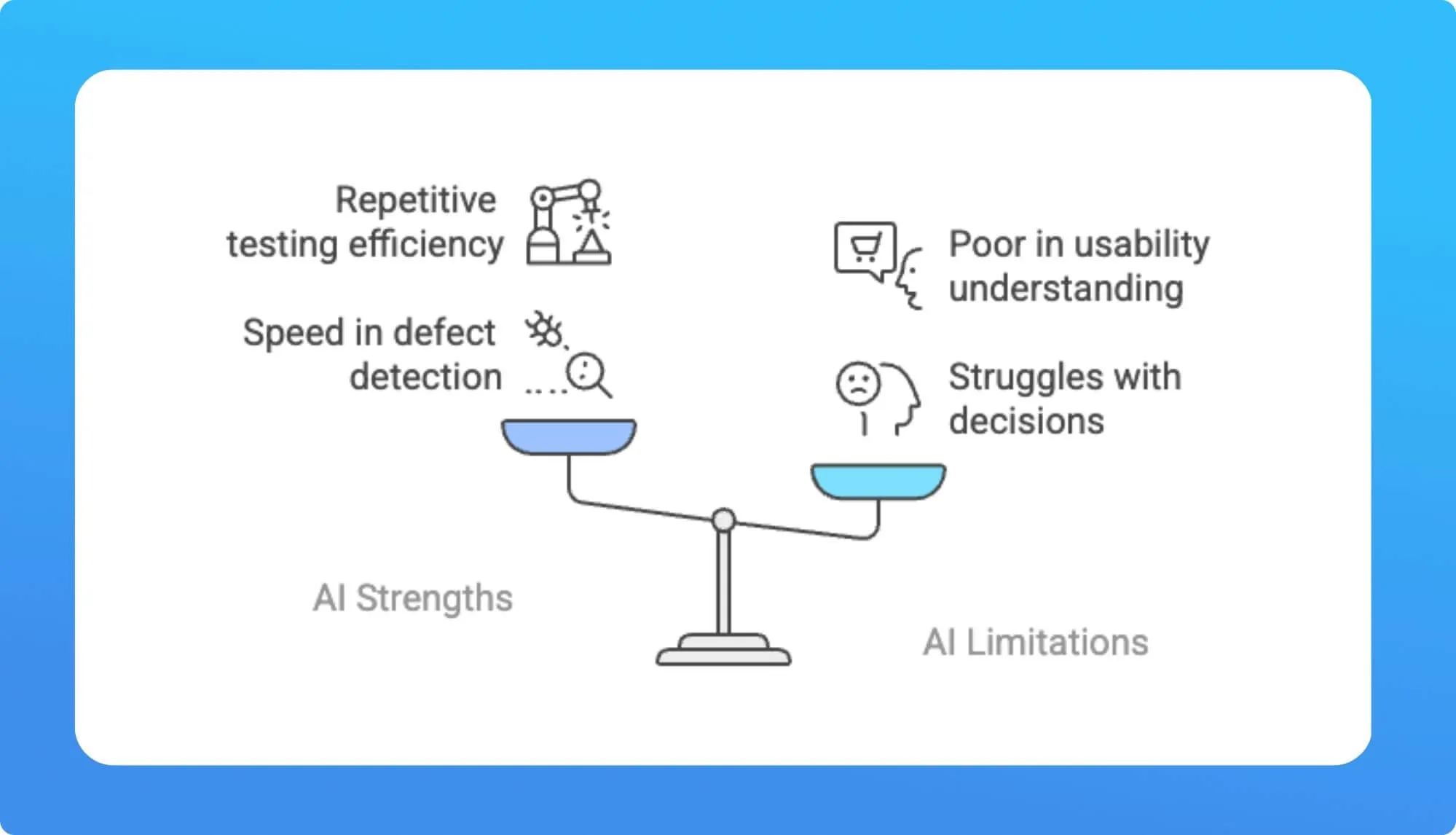Will AI Replace Quality Assurance Technicians?
AI is transforming quality assurance, but it’s not replacing skilled technicians. Those who adapt will be more valuable than ever.
Table of contents

AI is transforming quality assurance, but it’s not replacing skilled technicians. Those who adapt will be more valuable than ever.
If you're working as a quality assurance (QA) technician, you're no stranger to detail. You spend your days testing, inspecting, and ensuring that products or systems meet standards. It’s hands-on, methodical work and plays a vital role in keeping things running smoothly.
But with AI entering the picture, the question naturally arises:
"Is my job safe? Could AI replace quality assurance technicians?"
Here’s the truth: AI is transforming QA work, but it’s not replacing skilled technicians anytime soon. Instead, it’s changing how quality control gets done—and those who understand how to work with AI will be in a stronger position than ever before.
Let’s walk through what’s really happening.

AI—short for Artificial Intelligence—is a type of software that can “learn” from patterns and data. It’s being used across manufacturing, software testing, and service industries to help detect problems faster and more accurately.
Here’s how it’s already impacting QA work:
In industries like electronics, automotive, and pharmaceuticals, companies are using AI-powered cameras and sensors to detect defects in real-time. These systems:
AI systems can analyze huge amounts of past data—defect rates, customer complaints, production logs—to predict where and when issues are likely to occur. This helps companies:
This is known as “predictive maintenance” or “predictive quality assurance.”
In digital industries, especially in app and website development, AI tools are used to:
Some QA technicians in tech companies are already working alongside these tools—writing test plans, interpreting results, and focusing on more complex testing tasks.
So yes, AI is changing QA. But there are still critical things only humans can do.
AI is powerful when it comes to repetition and pattern recognition. But it has clear limits. Let’s look at both sides.
In other words, AI can be an extra set of eyes, but it still needs a thinking human behind it to understand what the problem really means and what to do about it.

Some QA tasks are at high risk of automation—mainly those that involve simple, repetitive checks. But most quality control jobs require more than just ticking boxes.
AI can assist, but judgment, accountability, and problem-solving still rest with human QA professionals.
“AI in quality assurance automates repetitive tasks, enhances accuracy, and reduces human error, but it also requires QA professionals to adapt by acquiring new skills like algorithmic analysis and business intelligence. While AI excels in efficiency and consistency, humans remain indispensable for complex tasks requiring judgment, empathy, and adaptability”.
- Convin.ai blog

If you're a QA technician today, you already bring value through your eye for detail, discipline, and commitment to quality. Here’s how you can take that foundation and grow with the industry:
You don’t need to build the AI—but understanding how it works will give you a big edge. You might learn:
These are skills that companies increasingly want—and pay for.
As machines take over inspection tasks, human QA roles are shifting toward:
This is where your experience matters most: using patterns, context, and hands-on knowledge to improve systems over time.
Many QA professionals are branching into digital quality assurance roles where testing, analysis, and automation all come together. And you don’t need to become a coder to do this.
Here are some alternative careers for Quality Assurance Technicians:
These roles offer more stability, flexibility, and income potential, especially as AI becomes a bigger part of business.
AI is not the end of quality assurance—it’s a new chapter.
Routine tasks are indeed being automated. But at the same time, companies need smart, adaptable technicians more than ever—people who can understand the tools, analyze problems, and maintain quality in a fast-changing world.
If you’re ready to go from checking quality to driving it, now is the time to upskill.
The best part? You don’t need to learn coding. You just need to learn how to work with the tools that are shaping the future.
Build on your QA skills. Step into the future. Stay essential.
Looking to re-invent yourself and turn your talent into a career? Stay up to date with the latest.